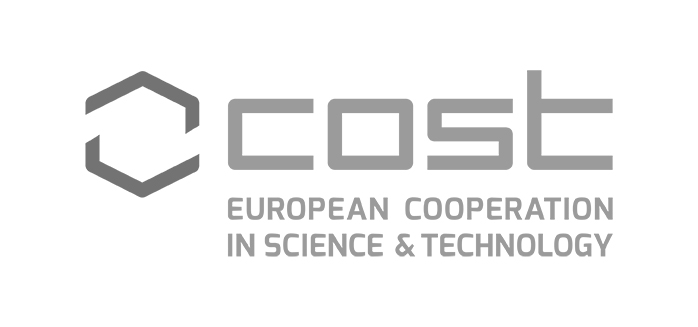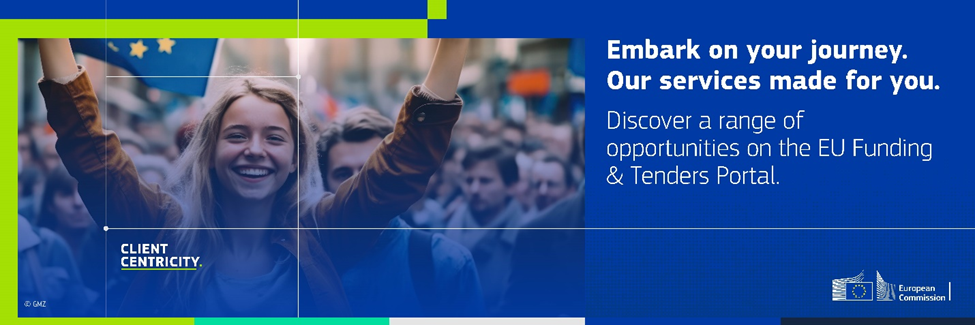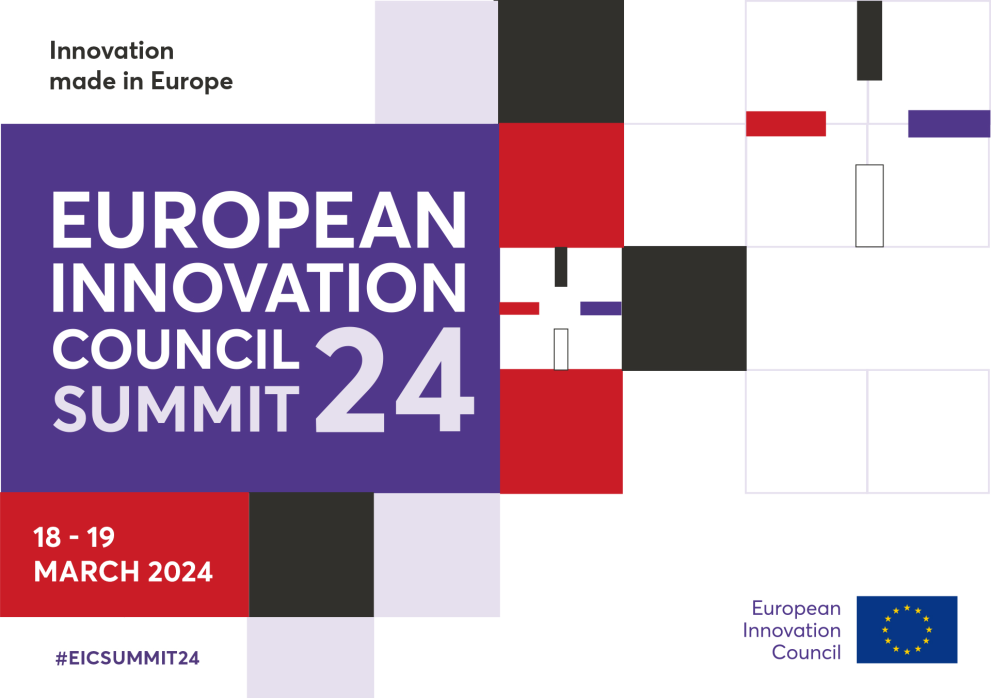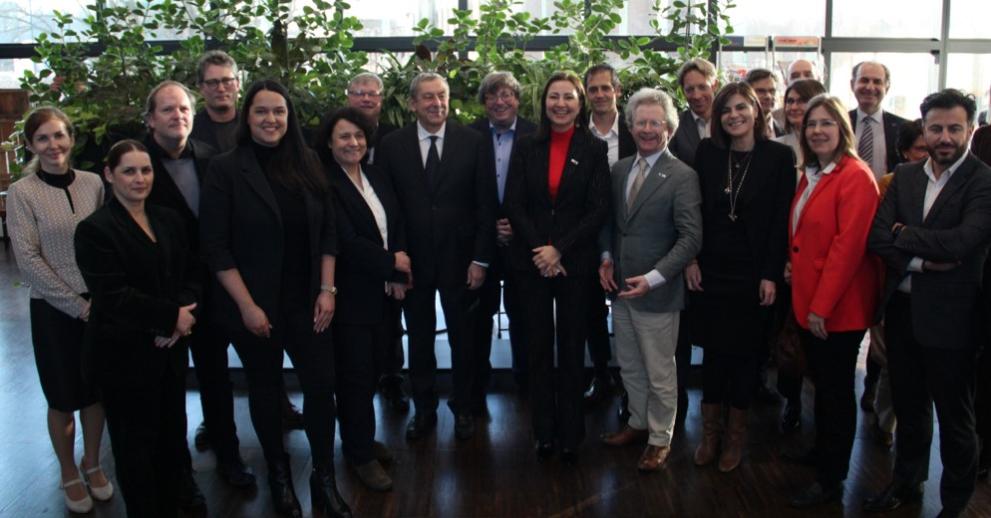COST Actions: A Catalyst for Research Collaboration
The development and growth of research across Europe have been significantly shaped by initiatives that foster collaboration, networking, and knowledge-sharing among scientists and researchers. Among these initiatives, COST Actions stand out as a unique and impactful program that bridges the gap between different research communities, disciplines, and countries. COST Actions are not just about research funding; they represent a broader, more integrated approach to scientific collaboration that can lead to ground breaking discoveries and innovations.
What are COST Actions?
COST, which stands for *European Cooperation in Science and Technology*, is an intergovernmental framework established in 1971 that aims to support the coordination of nationally funded research activities across Europe. COST Actions are one of the key mechanisms through which this support is delivered. They are essentially networks that bring together researchers and innovators from various disciplines, institutions, and countries to work on specific research topics. These networks are open to all scientific fields, including the humanities and social sciences, and they are characterised by their inclusivity, flexibility, and interdisciplinarity.
A COST Action is a bottom-up initiative, meaning that the topics are proposed by the researchers themselves rather than being dictated by the funding body. This ensures that the Actions are relevant to current scientific needs and interests, and it allows for the exploration of emerging research areas. Once a proposal is approved, the Action receives funding to support activities such as workshops, conferences, short-term scientific missions, training schools, and dissemination efforts. Importantly, COST Actions do not fund research directly; instead, they focus on networking activities that enable researchers to collaborate, share knowledge, and build partnerships that can lead to larger, funded research projects.
The Structure and Process of COST Actions
COST Actions typically span four years and involve participants from at least seven different COST member countries. However, participation is not limited to Europe; researchers from non-COST countries can also join, making the networks truly global. The structure of a COST Action is designed to be flexible, allowing participants to tailor their activities according to the needs of the network. This adaptability is one of the key strengths of COST Actions, as it allows for the inclusion of diverse perspectives and expertise, fostering innovation and creativity.
The process of setting up a COST Action begins with the submission of a proposal by researchers. These proposals are then evaluated by independent experts based on criteria such as scientific excellence, networking potential, and impact. Once approved, the Action is launched, and a Management Committee is established to oversee its activities. This committee is composed of representatives from the participating countries and is responsible for coordinating the network's activities, managing the budget, and ensuring that the objectives of the Action are met.
COST Actions are organised into Working Groups, each focused on a specific aspect of the research topic. These groups are where the core work of the Action takes place, with members collaborating on joint publications, developing new methodologies, and sharing data and resources. The interdisciplinary nature of these Working Groups often leads to innovative approaches and solutions that might not have emerged within a single discipline.
The Impact of COST Actions
The impact of COST Actions can be seen in several areas, from the advancement of scientific knowledge to the development of new technologies and the strengthening of research capacities across Europe. One of the most significant outcomes of COST Actions is the formation of durable research networks that continue to collaborate long after the official end of the Action. These networks often lead to the submission of joint research proposals to larger funding bodies, such as the European Union's Horizon Europe program, thereby multiplying the impact of the initial COST Action.
Another important aspect of COST Actions is their role in supporting early-career researchers. The networking opportunities provided by COST Actions are invaluable for young scientists, allowing them to build connections with senior researchers, gain exposure to different research environments, and enhance their professional development. COST Actions also promote gender balance and inclusivity, ensuring that researchers from all backgrounds have the opportunity to participate and contribute to the network.
COST Actions also play a crucial role in addressing societal challenges by fostering interdisciplinary collaborations that can tackle complex issues such as climate change, public health, and digital transformation. For example, a COST Action might bring together experts in environmental science, economics, and policy to develop integrated approaches to climate adaptation. This ability to connect different fields of knowledge and practice is one of the unique strengths of COST Actions.
UK Eligibility
UK entities are allowed to join COST Actions, even after the UK's exit from the European Union. The UK participates in COST Actions as a member of the COST program, which is separate from the EU's Horizon Europe framework. This means that researchers, institutions, and other entities based in the UK can still participate in COST Actions alongside their European and international counterparts.
As participants, UK researchers can join existing COST Actions, propose new ones, and benefit from the networking, training, and collaboration opportunities that these actions provide. This ongoing participation reflects COST's commitment to inclusivity and its goal of fostering collaborative research across a broad geographical area, including non-EU countries.
Overall, UK entities remain active and integral participants in COST Actions, continuing to contribute to and benefit from this vibrant European research network.
For more information, visit the COST website:
Discovering the Eureka Eurostars Programme
The Eureka Eurostars programme is co-funded by the European Union through Horizon Europe. It aims to foster transnational innovation by providing significant funding to R&D projects that seek to commercialise novel products, processes, or services with a civilian purpose.
What is the Eurostars Programme?
Eurostars is recognised as the largest international funding programme dedicated to supporting innovative SMEs. It emphasises collaborative R&D projects, encouraging partnerships among SMEs, universities, and research centres across 37 participating countries. Even organisations from non-participating countries are welcomed to join a Eurostars consortium, making it a truly global initiative.
The programme's core objective is to bolster projects led by innovative SMEs, ensuring they have the resources and support necessary to transform ground breaking ideas into market-ready solutions. Each year, the programme facilitates approximately €250 million in public-private investment, funding around 680 organisations.
Why Choose Eurostars?
Participating in Eurostars offers numerous advantages:
- Access to Public Funding: Successful applicants receive substantial grants from their national funding bodies, significantly offsetting R&D costs.
- International Network: Participants join a growing network of SMEs, universities, and research centres, fostering long-term relationships and collaborative opportunities.
- Expert Support: The programme provides access to a network of industry experts, enhancing the quality and impact of R&D projects.
- Market Expansion: Many companies experience a 15% increase in annual turnover, with 69% entering new markets and 68% improving their market share.
- Visibility and Credibility: Participation boosts the visibility of organizations within their specialist fields, often leading to enhanced perceptions from private investors.
Competitive Edge
Despite the competitive nature of Eurostars, the average success rate is high in comparison with other comparable programmes, averaging at 29%. The submission and evaluation processes are centralised and transparent, ensuring all applications are judged fairly by industry experts.
Eurostars is not just about funding; it is about creating a sustainable ecosystem where R&D relationships evolve into lasting business partnerships. The programme's emphasis on market-driven innovation means that projects are not only scientifically sound but also commercially viable.
Business Benefits Beyond Funding
Participation in Eurostars often leads to transformative outcomes for businesses. Apart from financial support, companies benefit from increased market visibility and improved business relationships. The statistics speak for themselves: companies involved in Eurostars projects report significant market expansion and enhanced technological capabilities.
Moreover, the programme's emphasis on collaboration fosters a culture of innovation, pushing companies to explore new ideas and markets. This collaborative spirit is crucial in today’s rapidly evolving technological landscape, where staying ahead of the curve often means joining forces with like-minded innovators.
How to Get Involved
The process to apply for Eurostars is straightforward but rigorous. Interested parties must form a consortium with at least one other independent entity from a participating country. The innovative SME must be the primary applicant and project leader. The consortium can include other SMEs, large companies, universities, and research organisations (each country operates its own eligibility criteria, so it is imperative to read the guidelines for each participating country).
The next deadline for Eurostars applications is 12th September 2024. Prospective applicants should begin preparations well in advance to ensure their proposals are robust and comprehensive. For a free consultation to discuss your project, contact RedKnight today.
New release of EU Funding & Tenders Portal launched
The European Commission (EC) recently announced the launch of the latest iteration of the EU Funding & Tenders Portal, marking a significant milestone in its journey to enhance user experience. Drawing on the invaluable feedback from a diverse community of over 1.5 million users, which includes EU funding applicants, beneficiaries, tenderers, and experts, the EC has worked to implement improvements that cater to user needs and preferences.
This new release introduces a range of enhancements aimed at providing users with a more intuitive and immersive experience. Among the notable updates are refreshed interfaces across the Portal, with the homepage now prominently showcasing the EC's core services and functionalities. Powered by state-of-the-art technology, the funding page search engine has been revamped to deliver more precise and relevant results, ensuring users can easily discover funding opportunities that align with their interests and objectives.
For logged-in users, the EC has introduced affinity-based recommendations of 'calls for proposals,' tailored to their specific profile and preferences. This personalised approach ensures that users never miss out on relevant opportunities that could take their project forward. Additionally, to further streamline navigation, the EC has integrated a global search feature at the top right corner of the Portal, allowing users to quickly access the information with ease.
The EC’s commitment to continuous improvement means it is constantly striving to enhance user experience on the EU Funding & Tenders Portal. To provide a comprehensive overview of all the latest updates and novelties, interested stakeholders are invited to watch a 3 minute informative video, which highlights the key enhancements and previews what's to come in the future.
EIC Summit and R&I Week
The European Innovation Council Summit 2024, will take place on 18th and 19th March as part of the Research & Innovation week.
Celebrating the 40-year journey through the Research and Innovation Framework Programmes, the R&I Week 2024 will debate the future of R&I and shape the contribution to EU political priorities, in particular the EU Tech Sovereignty and Competitiveness.
Tuesday 19th March will be fully dedicated to EIC beneficiaries with workshops covering diverse issues for researchers and entrepreneurs, such as intellectual property rights, investments, or scaling up your company. Discover the full programme and list of speakers.
The R&I week also includes the Belgian Presidency event on Innovative Procurement, taking over from the EIC Summit on the late afternoon of 19 March and continuing until the afternoon of 20 March. After that, it’s the start of the Research and Innovation Days providing a full R&I related programme, closing at the end of 21st March.
To register, click here.
New EIC Board holds its first plenary meeting
The recent inaugural meeting of the new European Innovation Council (EIC) Board, held on January 10 and 11, 2024, in the prestigious imec facility in Leuven, Belgium, marks a significant milestone in the journey towards fostering innovation across Europe. This event symbolises the commitment of the European Union (EU) to spearhead innovation and sets the stage for strategic advancements in European research and innovation.
Appointed by the European Commission (EC) on December 13, 2023, the new EIC Board, under the leadership of its President, Michiel Scheffer, holds a pivotal role in guiding the direction of the EIC. The Board’s responsibilities extend beyond advisory roles; they encompass shaping the strategy, work programme, thematic portfolios, and, upon the Commission's request, advising on broader innovation policy matters. This structure ensures a comprehensive approach to innovation, integrating strategic insights with practical implementations.
The EIC Board is scheduled to convene five to six plenary meetings annually. These sessions are crucial for deliberating on the EIC's strategic and operational frameworks and advising the EC on various matters within their mandate. The recent meeting marked the first plenary session with the new Board membership. The primary agenda was to establish the priorities for the Board’s work in 2024, especially focusing on strategizing and implementing the EIC's objectives for the latter half of the 2024-27 programme. This session was attended by Iliana Ivanova, Commissioner for Innovation, Research, Culture, Education, and Youth, who engaged with Board members in a fruitful exchange on the EIC’s priorities within the broader context of EU policies and the mid-term review of Horizon Europe. Horizon Europe, the EU's flagship funding programme for research and innovation, is integral to the EIC's mission, underscoring the importance of aligning the EIC's strategies with the overarching goals of the EU.
The composition of the EIC Board reflects a blend of continuity and fresh perspectives. Members serve in a personal capacity, with their terms set for two years, renewable twice. This structure facilitates the rotation of approximately one-third of the members every two years, ensuring a dynamic infusion of ideas and experiences. The current Board, comprising 10 members with renewed mandates from the 2021-23 period and 10 new members selected from a reserve list, represents a diverse and experienced group of individuals committed to steering Europe towards a brighter, innovation-driven future.
The mandate of these new and renewed members, extending until December 2025, symbolises a period of opportunity and challenge. As Europe navigates through complexities of the modern world, the EIC Board's role becomes increasingly vital. It embodies a strategic think-tank, poised to influence the direction of European innovation, making substantial contributions to the development and implementation of policies that nurture research, innovation, and education.
As the Board embarks on its journey to shape the future of innovation, its decisions and strategies will undoubtedly play a critical role in determining the trajectory of Europe's innovation landscape. With a balanced mix of continuity and new insights, the EIC Board is well-positioned to drive significant advancements in research and innovation, ultimately contributing to the prosperity and competitiveness of the EU on the global stage.
Eureka Eurostars: frequently asked questions (FAQs)
1. What is Eureka Eurostars?
Eureka Eurostars is an international funding programme for innovative SMEs. It provides funding for collaborative R&D projects that create innovative products, processes or services for commercialisation.
2. What are the eligibility criteria?
To apply, you must fulfil six eligibility criteria:
- Your consortium must be led by an innovative SME from a Eurostars country.
- Your consortium must include entities from at least two Eurostars countries.
- The budget of the SME(s) from a Eurostars country, excluding subcontracting, must be 50% or more of the total project cost.
- No single participant or country should be responsible for more than 70% of the project budget.
- The project duration must be 36 months or less.
- The project must have an exclusively civilian purpose.
3. Who are the participating countries?
There are 37 participating countries: Austria, Belgium, Bulgaria, Canada, Croatia, Cyprus, Czech Republic, Denmark, Estonia, Finland, France, Germany, Greece, Hungary, Iceland, Ireland, Israel, Italy, Latvia, Lithuania, Luxembourg, Malta, the Netherlands, Norway, Poland, Portugal, Romania, Singapore, Slovakia, Slovenia, South Africa, South Korea, Spain, Sweden, Switzerland, Türkiye and the United Kingdom.
4. What funding is available?
As a decentralised programme, each Eureka country administrates its own participation, meaning every country has its own rules, regulations, and grant rate. UK registered SMEs can apply for a total grant of up to €360,000 or 60% of the total eligible project costs (whichever is the least).
5. What stage of development does Eurostars fund?
Eureka Eurostars supports early-stage R&D projects to transition from TRL 4 until TRL 6.
6. How do UK organisations apply?
If you are a UK lead applicant, you must submit an Innovate UK application and complete the Eureka application on behalf of your project. If your consortium is led by an organisation from another participating country, one of the UK grant claiming partners will need to submit the application to Innovate UK.
7. What is the evaluation process?
Eurostars has a centralised evaluation process. In the first step, each eligible application is assessed by three independent experts commissioned by the Eureka Association. A legal and financial viability check also takes place at this stage.
Then, applications that pass the evaluation and legal and financial viability check are evaluated by the Independent Evaluation Panel. They define a ranking list of the applications and recommend the top applications for funding.
8. What are the chances of success?
29% of all applications receive funding. It is less competitive than similar innovation funding streams, such as Innovate UK Smart Grants and the EIC Accelerator.
9. Can I apply again if I am unsuccessful?
Yes, you can resubmit a Eurostars application to Innovate UK if your first attempt is unsuccessful. However, you are limited to a maximum of two applications to Innovate UK with any given proposal.
10. How can RedKnight help?
RedKnight has a proven track record with Eureka Eurostars and can help you develop a competitive application. Most recently, we won €674,160 on behalf of the FrOLik consortium – read more about this here.
 If you are looking for bid writing support with a Eureka Eurostars application, we’d love to hear from you! Please contact us in order to arrange a free consultation.
If you are looking for bid writing support with a Eureka Eurostars application, we’d love to hear from you! Please contact us in order to arrange a free consultation.
Eureka Eurostars 3: Call 3 now open
Eureka Eurostars 3: Call 3 is open for applications until 15th September. Through this competition, UK registered SMEs can apply for a share of £2.5 million to fund collaborative R&D projects with organisations from participating Eureka Eurostars member countries.
Scope
Applicants must develop an innovative product, technology-based application, or technology-based service with high market potential, and transition from TRL 4 to TRL 6. All proposals must demonstrate:
- a game-changing or disruptive idea leading to new products, processes or services
- a strong and deliverable business plan that addresses market potential and needs
- sound, practical financial plans and timelines
- good value for money
- a clear, evidence-based plan to deliver significant economic impact, return on investment (ROI) and growth through commercialisation, as soon as possible after project completion
- clear, considerable potential to significantly benefit the UK economy and/or national productivity
- the benefit of participants from the countries working together and how this adds value
- a clear definition of where intellectual property can be used and shared between the participants and countries
- a clear route to market within two years of project completion
Eligibility
UK registered SMEs can apply for a total grant of up to €360,000 or 60% of the total eligible project costs (whichever is the least). To apply, you must also fulfil the following seven eligibility criteria:
- The project lead is an innovative SME from a Eurostars country.
- Include at least two independent entities in your consortium.
- Include entities from at least two Eurostars' countries in your consortium.
- The budget of the SME(s) from a Eurostars country, excluding subcontracting, is 50% or more of the total project cost.
- No single participant or country is responsible for more than 70% of the project budget.
- The project duration is less than 36 months.
- The project has an exclusively civilian purpose.
How can RedKnight help?
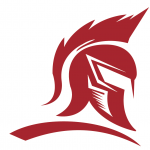 RedKnight has an excellent track record of supporting applications to Eureka Eurostars. For example, we recently won €674,160 on behalf of the FrOLik consortium – read more about this here. If you are looking for bid writing support and would like to arrange a free consultation, get in touch today.
RedKnight has an excellent track record of supporting applications to Eureka Eurostars. For example, we recently won €674,160 on behalf of the FrOLik consortium – read more about this here. If you are looking for bid writing support and would like to arrange a free consultation, get in touch today.
An update on the EIC Accelerator
The European Commission has provided an update on the EIC Accelerator – Europe’s flagship programme for start-ups and SMEs developing breakthrough technologies and innovation. It claims implementation is back on track amid continued strong interest in the programme.
State of implementation
Since its launch in March 2021, the EIC Accelerator has experienced delays in the signature of grant and investment agreements. This is due to disagreement over the management of the EIC Fund.
Things finally appear to be back on track as the European Commission expects to approve all delayed grant decisions from the 2021 cut-offs by the end of the summer. They also announced the first equity investment this month, with further investments set to follow in the next few weeks.
Revised strategic goals
The EIC Board has published a revised set of strategic goals for 2021-27. In short, the European Innovation Council aims to:
- Be the investor of choice for those with visionary ideas.
- Crowd €30-50 billion investment into European deep tech.
- Pull through high-risk technologies in critical areas for society and strategic autonomy.
- Increase the number of European unicorns and scale ups.
- Catalyse innovation impacts from European public R&D.
- Achieve operational excellence.
Operational excellence is underpinned by two significant key performance indicators: i) startups to receive first grant payment within 4-5 months of applying to the EIC and ii) EIC Fund to agree investment term sheet within 8 weeks. You can read the full list of strategic goals and key performance indicators here.
Level of interest
The European Innovation Council received 986 full applications to the June 15th cut-off. The highest number of applications came from Germany (110), Israel (87), Italy (85) and Spain (81). Successful companies will be invited to interview in September, with selection decisions expected in October.
 UK participation
UK participation
UK entities can apply to most Horizon Europe funding opportunities on the same terms as EU-based applicants. While this includes the grant element of the EIC Accelerator, UK applicants are unfortunately not eligible to receive loans or equity from the EIC Fund.
Please note that the UK is still in the process of associating to Horizon Europe. However, there is a ‘Horizon Europe guarantee’ scheme in place for successful UK applicants who are unable to sign grant agreements with the EU.
RedKnight has a strong track record of securing innovation funding and can help you develop a competitive application! Please contact us in order to arrange a free consultation.
Beginner’s Guide: How to build an effective consortium in Horizon Europe
International cooperation is at the heart of Horizon Europe; for most calls for proposals, you will need to apply as a team of at least three partner organisations from different Member States or Associated Countries. However, building a winning consortium is no easy task! Here are five tips to keep in mind if you’re just getting started:
1. Start early
It’s important that you give yourself plenty of time to build a consortium. This will allow you to speak with numerous organisations to ensure you get the very best people on board for your project.
Where possible, we recommend starting the consortium-building process before calls are even announced. It is worth familiarising yourself with the Horizon Europe strategic plan, which sets the strategic orientations for research and innovation investments in the programme's first four years. In addition, work programmes set out funding opportunities under Horizon Europe and can help you anticipate upcoming calls. From here, you can start building out a network of relevant organisations.
Tip: Think about the time needed to prepare the bid. The more partners, the longer this will take!
2. Use your network
Your network is the best place to start looking for potential project partners! Firstly, consider whether you have existing collaborators who can help you deliver the project. Not only this, but do your existing collaborators have contacts who can help?
Tip: Previous (successful) collaborations indicate your consortium work well together, therefore mitigating some of the risks associated with the project.
… But don’t be afraid to look beyond it!
While your network is a great place to start, it’s important that you don’t just work with your friends. If they have the necessary skills and experience – great! If not, you should look outside of your network to find organisations that better fit the project.
One way to find new partners is through the built-in Partner Search tool on the European Funding and Tenders Portal. Organisations can search for potential partners for collaborative projects through the partner search page (link this) and through specific topic pages.
Other places to find partners online include Crowdhelix, an Open Innovation network for organisations seeking Horizon Europe funding, and LinkedIn groups. We would also recommend participating in Info Days and brokerage events where possible, as they are a great way to network and form new collaborations.
Tip: Short on time? You can publish your own Partner Search request on the EU Funding and Tenders Portal with details of what you are looking for.
3. Keep the budget in mind
The size of the consortium will be impacted by the size of the grant available. You need to ensure that you have a sufficient budget to fund the number of partners involved in the project. All partners will also need to be aware of the grant amount ceiling so they can construct their work plans in line with the money available.
Tip: If the budget is stretched, you may need to consider scaling back the number of partners involved in the project.
4. Keep your end objectives in mind
Before you approach potential partners, you should have a clear understanding of what it is you want to do. This way, you will know exactly who to approach and can ensure that the consortium brings together the necessary expertise to fulfil the project’s end objectives.
Tip: Consider the evaluation criteria - in what way does each of the partners contribute to the project? Do they each have a valid role, and adequate resources in the project to fulfil that role?
5. Manage expectations from the very start
As the project coordinator, your role is to manage the expectations of all partners. We recommend:
- Discussing roles and responsibilities, in terms of both writing the proposal and delivering the project.
- Ensuring all partners agree on the budget. As the project coordinator, you should have the final say.
- Discussing the likelihood of success. All partners should recognise that EU funding calls are extremely competitive and even excellent teams aren’t guaranteed to succeed.
- Ensuring all partners have access to a project management and delivery handbook.
Tip: Organise a face-to-face meetup if you can! It’s important that all partners get to know each other to ensure the project runs smoothly.
How can RedKnight help?
RedKnight can help you identify potential project partners as part of our retained consultancy package. You can find more information here. Or, if you’ve already formed a consortium and are looking for bid writing support, we’d love to hear from you! Please contact us to arrange a free consultation.
European Commission adopts EIC Work Programme 2022
The European Commission has adopted the 2022 work programme of the European Innovation Council (EIC)! In 2022, it will provide €1.7 billion for breakthrough innovators to scale up and create new markets.
EIC Pathfinder
Firstly, the EIC Pathfinder will receive €350 million to fund early-stage technology research. €183 million will be awarded through Pathfinder Open, with submissions open from 1st March until 4th May. The remaining €167 million aims to tackle the following six challenges:
- Carbon dioxide and nitrogen management and valorisation
- Mid-long term, systems-integrated energy storage
- Cardiogenomics
- Healthcare continuum technologies
- DNA-based digital data storage
- Alternative approaches to quantum information processing, communication, and sensing.
These calls will open from 15th June until 19th October.
EIC Transition
Secondly, the EIC Transition will receive €131 million to fund technology validation and spin-out. It will focus on promising results generated by both EIC Pathfinder and European Research Council Proof of Concept projects. Calls open from 1st March, with €70.9 million allocated to EIC Transition Open and €60.5 million to the following Transition Challenges:
- Green digital devices for the future
- Process and system integration of clean energy technologies
- RNA-based therapies and diagnostics for complex or rare genetic diseases
EIC Accelerator
Lastly, the EIC Accelerator will provide €1.16 billion for start-ups and SMEs to develop and scale up high impact innovations. Applicants can submit a short application at any time. Then, the cut-off dates for full applications are 23rd March, 15th June, and 5th October.
What’s new in the 2022 EIC Work Programme?
- A new EIC-Scale Up 100 Initiative to identify 100 potential deep-tech unicorns.
- Equity investments above €15 million for technologies of strategic European interest.
- Stronger support for women innovators through the development of an innovation gender and diversity index.
- The EU Prize for Women Innovators includes two new prizes for innovators under 35.
- More frequent application deadlines.
- Second-time applicants to the EIC Accelerator can describe and defend the improvements made to their resubmission.
More Information
Further information on each of the calls is available in the EIC Work Programme 2022. There will also be an Information Day on 22nd February. If you are planning to apply for funding and would like bid writing support, please contact us in order to arrange a free consultation.

